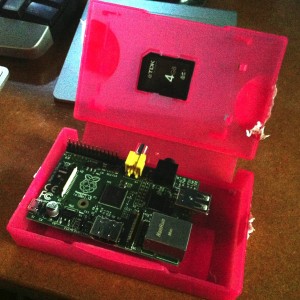I recently completed a physical migration of my server, the one that hosts this very page! It all went successfully, and without any noticeable downtime for this site, which I am pleased to be able to do.
There was, however, a period of time during which this server needed to be physically switched off and moved to the new location. To enable zero downtime, something would need to be able to host the server during that period.
Enter my Raspberry Pi!
This amazing little thing is capable of running Raspbian, a modified version of Debian, which means I get access to the rich library of Debian packages that are available. I have a private Git repository containing a modular set of Puppet manifests. These describe the exact configuration of this server, so by applying the Puppet manifests, I can spin up a new instance of this particular server’s configuration on a whim.
So, I dusted off an SD card that was lying around, dropped Raspbian on it, and installed Puppet and Git and applied the manifests.
If I’m honest, there were a few components that weren’t quite so happy to run, despite packages being available. Varnish didn’t seem to like my VCL file, so I had to run the site here directly with Nginx pointing to PHP-FPM instead.
To cut a long story short, it worked! I was successfully serving up this site, from the Pi, using (almost) my existing configuration. Performance was not stellar, even compared to the modest hardware that normally serves this page, with page load times about 10 times slower than uncached page loads normally would be. The main blog page did take 1.5 seconds to render! For the short time I needed it though, I was very happy to have a very inexpensive and easy solution.

I love it! What a neat way to get around downtime issues.